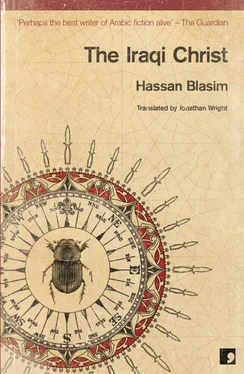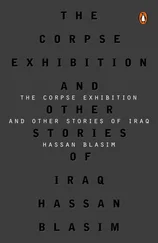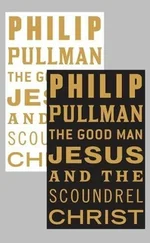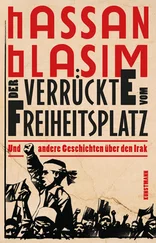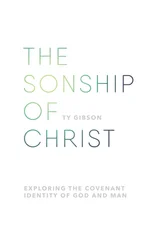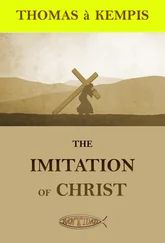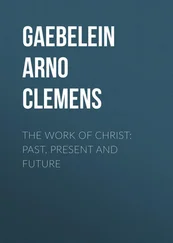‘But I hate rats,’ came Saro’s reply.
The train moved. My tooth was hurting. I took an aspirin and tried to relax. I browsed through the newspaper without interest. On the back page there was a story about a poisoning incident:
A Belgian woman set sail on a boating expedition last week, accompanied by only her dog and a few cans of her favourite drink, Coca Cola. Once out in clear water, the woman stowed her cans in the boat’s refrigerator and then, according to police reports, began to play with the dog by vigorously rubbing its penis. The next day the woman was taken to hospital and put in intensive care. She died three days later. After a post-mortem examination, and prior to the dog being handed over to a shelter for stray pets, it was established that rat urine on the Coca Cola cans was the cause of the illness, having infected the woman with a deadly spirochaetic-related pathogen. As part of the investigation police and public health officials have now visited the supermarket where the woman purchased the cans. The rat is still being sought.
Sitting on top of the hill under a tree… Typing my remarks about the River Nabi on a laptop… A giant sun roasts the village. Ants carry away the remains of a dead hornet. Other strange insects nibble at each other. My stomach hurts! The doctor says it’s an inflammation of the colon. My stomach swelled up three weeks ago as if I were pregnant. I’m writing a study for a local NGO that intends to rip off a foreign NGO that issues grants. My task is to exaggerate the truth. To spread panic about drought. To paint a bleak picture of the many villages that lie scattered along the banks of the River Nabi, which runs between my country and that of our hostile neighbours. We’ve been fighting ruinous wars with these neighbours since the dawn of history. The fragile peace we now have with them is just a dormant volcano. I’m currently contributing to a narrative that concludes with the volcano erupting once again. Without water blood will flow. Thirst will arouse that brutal, hostile memory. And it won’t be just humans that will perish, but also rare birds and insects and the flocks of animals that provide the local people with their sustenance, not to mention the rhythm of their lives.
This year I’ve toured six villages and recorded my dramatic observations on each one. Sarsara’s village, which faces the River Nabi, was my last fact-finding destination. This is the great river of whose banks poets have sung countless praises. Each, in his own language, offered to its sweet waters love, reverence, rituals, fabulous stories and reports of floods and drownings. What does our NGO want to prove? If the river runs dry it will be filled with the blood of those who love it. Water is love. The spectre of the future takes the form of a terrifying desert. We won’t go back to the jungle to fight. This time we’ll go to the desert and slaughter each other. Our new ice age will be a thirsty desert.
The birds don’t land on Sarsara’s tree and the insects don’t climb it. That’s what the teacher said and that’s what I noticed during the three hours I spent close by. I took some pictures of the tree and kept a twig from one of the branches.
I met the village teacher after fruitless meetings with some of the local people. They would talk like cartoon characters. They were pleasant and generous, but their vagueness was annoying. I had doubts about everything Mr Shamreen, the village teacher, told me. He may have been in collusion with our NGO. For all I knew, he may have received a bribe to make up stories about the drought. What he told me about Sarsara’s tree didn’t answer my questions about the harvests and the water problems. Sure, he was a friendly, educated man. But he struck me as somewhat devious. The local people consulted him on everything, large or small. When I visited him in his mud room, where he taught reading and writing, he had an adolescent boy with him. The boy had big eyes that sparkled brightly at me. The boy was consulting him about the purple flowers that surrounded the village like an arc every spring. He was asking why the bees avoided these flowers. Shamreen replied that the bees were upset because a distinctive star had disappeared from the firmament recently. And the bees would come back soon when they were sure that the star was safely on its path to a new life. The boy suggested they all support the bees in their sadness and in their work to look after the star by agreeing with the birds that the farmers and the birds would refrain from singing throughout the coming spring.
The local people spoke in this way about most aspects of their life. From what I gathered, they avoided bad luck by using a special language. They had invented this language after the Sarsara incident. Shamreen the teacher was the only one authorized to speak to outsiders in the common tongue. And this Shamreen decided to speak to me on condition that I didn’t interrupt him with lots of questions. In fact I wasn’t interested in their secrets or their fables. Most of the villages were teeming with fables and strange stories. And then, if Shamreen was honest in what he said, why would he reveal their secrets to me? All I hoped to do was finish writing the report and submit my resignation from this thieving NGO. Their main concern, after all, was to convince international institutional donors that global warming would have a decisive effect on the drought problem and that the complicated political relationship with our neighbours could lead to problems in the near future, especially as our country’s rivers have their sources in neighbouring states. As far as I was concerned, the picture was clear: corruption and mismanagement of water resources. Large amounts of water were wasted because of the outdated methods the farmers used when irrigating their fields. But our organisation would gain nothing from this analysis. It was only panic about drought that would bring the money in. Talking up nightmare scenarios is a commercial venture that generally succeeds.
Shamreen the teacher had been an adolescent when the old woman Sarsara went off on her last grazing expedition. She had already lost her only son when he was twenty. He had taken his boat and rowed far out into the river to catch fish. He wasn’t a skilled fisherman. Many of the village people go fishing from time to time, but most of them are wheat farmers and a few live by herding animals. Sarsara’s son, a herdsman, drowned in the river in mysterious circumstances. The people who lived in Shams village brought his bloated body back from the other bank of the river.
‘Is it possible that the people on the other bank killed him?’ I asked the teacher.
‘No, the people in Shams don’t interfere in human affairs,’ he said.
‘Don’t interfere in human affairs!’
‘Well, I don’t mean they’re not human. But they don’t interfere in matters of life and death… That’s another subject… I’m talking to you about the tree… I’ll get to that story,’ said the teacher.
Sarsara mourned for her son quietly, as if a sparrow had died at the sunset hour. We buried her only son in the village cemetery and went back to our daily concerns. Sarsara looked after her son’s sheep and started to live in seclusion, protected by an aura of respect. One day Sarsara went out to graze her animals in the direction of the southern pastures on the way to the desert. She loaded her tent and some provisions on her donkey and set off with twenty sheep and three dogs. This trip to the pastures would normally last three days. But Sarsara didn’t come back to the village for five years. A military intelligence unit found her in the middle of the desert, all alone in her tent with only a cockerel for company. When they asked her what she was doing in such a desolate spot, she couldn’t give a straight answer. All she said was that her son had died and she had this cockerel. Then she said that she sometimes received supplies of water and food from the bedouin nomads in the desert. The intelligence officer said he would take her to hospital to check her health first. Sarsara came straight back to him with a request.
Читать дальше
